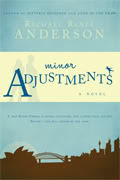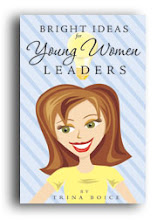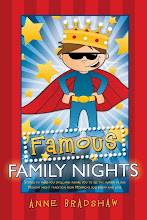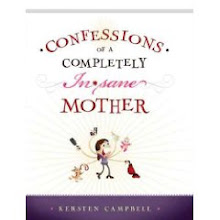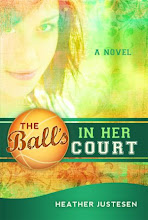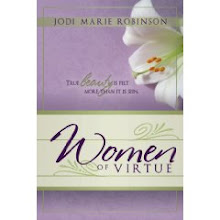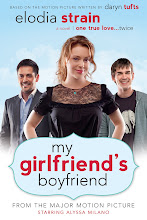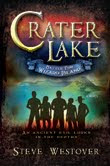No, I'm not asking you all to leave your computers to go high stepping around the room. I'm just looking forward to seeing the last of February.
So, bring on tomorrow!
February typically carries a great deal of expectation at my house, and it's always nice to see it end. Plus, I have a whole new writing project for March that I'm really looking forward to starting.
First, though, I have to officially end the contests I've been running over on my BLOG. The Grand Prize giveaway winner is announced tomorrow. Fun times.
What do you have in store for March?
Monday, February 28, 2011
Come On, March!
Posted by Cheri Chesley at 7:26 AM 1 comments
Labels: attainable goals, Contests, new projects
Wednesday, February 23, 2011
Posted by Michael Knudsen at 5:00 AM 0 comments
Tuesday, February 22, 2011
Promotion Takes Time
I'm pleased to announce that I'll have two book signings for The Upside of Down at Pioneer Book, 858 S. State, Orem, UT on Friday, March 18th, 4:00-6:00 pm and again on Saturday, March 19th, 12:00-2:00 pm. I'd love to have you stop by and say hello. Pioneer Book has been very accommodating and I really appreciate the opportunity to do a book signing.
I recently discovered that my book is in the spring Seagull Book catalog. Yay! I'm so excited to see it in this catalog.
I've also been very pleased with reviews by Tristi Pinkston and Sheila Staley.
My book has also received some great reviews over at Goodreads.
I've been working on promoting this book for months and I'm happy to see that it's finally getting some attention. As writers, I think we're so anxious to get the word out about our books that we become very impatient--we expect results right away. In my experience, it takes time. Marketing is a long process and it takes time to see results. I wrote a guest post for Cedar Fort Books about 10 things to do to create an online presence.
If you're looking to build interest in your book I recommend a few things:
1. LDSPublisher. You can choose to sponsor the blog for a month or pay a small fee to advertise your book in the sidebar. If you choose to sponsor, you will be required to send a copy of your book to a comment winner drawn randomly at the end of the month. Visit LDSPublisher for more information.
2. Goodreads. You can advertise on Goodreads to create interest in your book. You pay ahead for the ad and Goodreads charges against that amount to display your ad to your target market until the credit is gone. You can also do a giveaway. You simply register the details with Goodreads and choose what date(s) you want to have the giveaway contest. For my giveaway over 1200 people entered.
3. Facebook. You can advertise on FB for a small fee. You can target your market with the various options so only those who you think will be interested in your book will see your ad.
4. Blog Hop. The concept behind a blog hop is that people jump (or hop) from one blog to the next. Each blog is tied to the others through a link and you offer a book related prize in exchange for people becoming followers, liking your FB fan page, or signing up for a newsletter (or whatever you determine makes them eligible to win the prize you're offering).
5. Virtual Blog Tour. Send out copies of your book to various bloggers in exchange for a review.
You can read more on my article at Cedar Fort Books. Just remember, building interest takes time. Don't wait until your book is out before you start your marketing and promotional efforts. I recommend starting about 2-3 months prior to your release date by talking about it on your blog, posting information and cover images on your blog and website, and announcing it to email groups you're a part of. You can also set up a Goodreads giveaway to begin before your release date and you can create interest by offering a contest for pre-orders.
And, don't forget to work on your next book because your best marketing effort to build a fan base will be to write another, better book.
Posted by Rebecca Talley at 2:58 PM 3 comments
Labels: Book Marketing, Book Promotion, book signing
Sunday, February 20, 2011
Aloha from Hawaii
This week I have returned home to La'ie to do some book promotion, combined with a little bit of research. While not everything went quite as planned, I had a week that was nothing short of amazing.
I ate food featured in Bumpy Landings, including banana pancakes at the Hukilau Cafe:



I also went to see my friends in the band Vaihi, who provided the background music for my book trailers. They made me get up and dance the Shama Lama.
They made me get up and dance the Shama Lama. And I did research. I was privileged to go behind the scenes at the Polynesian Cultural Center, and watch the cast and crew put together the night show. I also went to a community fundraiser, and solved two different problems that have been plaguing my current work-in-progress.
And I did research. I was privileged to go behind the scenes at the Polynesian Cultural Center, and watch the cast and crew put together the night show. I also went to a community fundraiser, and solved two different problems that have been plaguing my current work-in-progress.
I had a chance to attend the La'ie temple, and see how nice everything looks after its recent renovation. Afterward, I went behind and took a picture of myself in front of the giant banyan tree.
Aloha oe, La'ie. Until we meet again.
Posted by Don at 10:56 PM 5 comments
Labels: Bumpy Landings, Donald J Carey
Wednesday, February 16, 2011
The Writing Anarchist- Rules and the Power of Suggestion

I suspect I will have many people disagree with the concept of this post. I welcome the disagreement, or I should say, I welcome the dialogue. Sometimes all it takes is a question or a challenge to get our juices flowing and we find that we are more passionate about a subject than we even realize. I hope that is the case with the questions I pose today.
Lately I’ve been pondering the rules and qualities that define good writing. Or more to the point, what makes one book better than another. I am reading a LOT right now, much more than usual, as I prepare to cast a somewhat informed vote for the Whitney Awards. I have heard some wonder if there are certain criteria we should all consider in judging. I’ve heard responses both for and against the use of a uniform evaluation form. Unfortunately, as yet I have come up with few conclusions but many questions.
I would like to ask a series of questions and get responses from the readers.
1- Are there certain norms and rules that fiction writing should follow to be considered worthy of accolades and general acceptance? Are these norms and rules the same today as they were twenty or fifty, one hundred or two hundred years ago? Why or why not?
2- Why do we accept certain rules and norms? Do we do it because a teacher or mentor told us we should and we want to sound smart or are there hard and fast rules about what defines quality in writing?
3- Are there generally accepted rules we question but follow in an attempt to go with the flow in appeasing the gatekeepers?
4- Does the average reader care about following the rules of grammar, punctuation and point of view or are they in it for the story and characters?
5- What is most important to assessing the quality of a book: Story, technical skill or conveyance of emotion?
6- How do we obtain the best writing education? Continual reading to discover what we like and how to emulate it? Classes that teach classic technique or writing conferences where experts and peers share their wisdom? Practice?
7- Is writing merely popular art that changes to meet the expectations of the audience? Or does the audience change as it becomes accustomed to the changes in art?
8- Which artist produced higher quality work—Picasso or Monet? Faulkner or King?
9- Are the differences between these authors and artists only stylistic or do they adhere to some different rules?
10- Are there some rules that should NEVER be broken if a writer wants to be taken seriously?
Am I a writing anarchist for questioning the value and method of how we arrive at our writing rules and norms, or am I merely an ill informed schmutz? Be honest. I can take it.
Like many readers I know what I like when I read it. I also know what I don’t like. I recently started reading a book and WOW…it is really bad. But I wonder how much of my taste is based on the rules I’ve been taught and the norms of the culture in which I live, instead of an acceptance or disapproval based on pure truth, innate quality and superior writing? Do I value what I’ve been trained to value?
In considering Whitney finalists I will suggest only one conclusion. I will vote for the books I enjoy. I will vote for the stories and characters I love and the themes and style that make me feel something. I’m not smart enough to evaluate in any other way. Am I wrong?
Please choose a question to answer. Don’t worry about being right or wrong or looking foolish. I think I’ve already established I’m the biggest fool here so just tell me what you think. Hopefully we can learn together.
FYI- I have developed a simple worksheet I use when evaluating my Enjoyment Factor of a book I am judging. Check out my Enjoyment Factor Worksheet.
Posted by Steve Westover at 4:00 AM 15 comments
Labels: anarchist, Book Review, coincidence in writing fiction, criteria, Enjoyment Factor, judging, quality writing, The Whitney Awards
Tuesday, February 15, 2011
Putting it all into Prospective
As I read the different blogs in our Writing Fortress group, I realize how much we reach out to each other with ideas, help, inspiration and support. With this in mind, I would like to share something I read from my little book entitled Inspirations.
Now, because this book is written for artists, I'll just simply change 'artist' to 'author' because the inspiration for both is the same.
"A believing mirror is a friend to your creativity--someone who believes in you and your creativity. As authors, we can consciously build Creative Clusters--a Sacred Circle of Believing Mirrors to potentiate each other's growth, to mirror a "yes" to each other's creativity. The Sacred Circle is built on respect and trust. The image is of the garden. Each plant has its name and its place. There is no one flower that conceals the need for another. Each bloom has its unique and irreplaceable beauty. Above all: God is the source. No human power can deflect our good or create it. We are all conduits for a higher self that would work through us. We are all equally connected to a spiritual source. We do not always know which amoung us will teach us best. We are all meant to cherish and serve one another.
One more thought of inspiration: Being an author requires enthusiasm more than discipline. Enthusiasm is not an emotional state. It is a spiritual commitment, a loving surrender to our creative process, a loving recognition of all the creativity around us. Enthusiasm (from the Greek, "filled with God") is an ongoing energy supply tapped into the flow of life itself. It is the child within us.
Now, don't forget to have your daily allotted chocolate and have a truly great day.
Posted by JoAnn Arnold at 6:39 AM 3 comments
Monday, February 14, 2011
Nothin' but Love

I have received the dubious honor of posting on Valentine's Day. I say dubious because, well, I'm not really a fan. To be honest, I think the idea of a day to celebrate love feels artificial and contrived. And I write romance! (for shame)
This Thursday, I celebrate 15 years of marriage to a most wonderful man. Every year he laments the lack of funds that prevent him from lavishing me with expensive flowers and gifts every Mother's Day, anniversary, Valentine's, birthday and Christmas. And every year, I remind him that I have little interest in material things. And, in all fact, were he to surprise me with a gift like a car or a house I would not like it. I do not believe large purchases like that should be made without agreement from both parties.
I'm so ungrateful.
The bitter dissolution of his first marriage taught him many things that he, thankfully, was willing to learn. One is that he will never let an opportunity pass to let someone he loves know how he feels. It has taken a lot of getting used to on my part. "I love you" was not a common phrase in my youth. In fact, I credit the love and attention he lavishes on my children with sparing them the neglect they feel when I have a writing deadline. And, our marriage has taught me a great many things. Most of which I apply in my novels.
People have read The Peasant Queen and some--not all, but some--have really appreciated Prince Jareth. I want to state, publicly, that the deep, abiding, patient kind of love he feels for Krystal is something I know first hand. As readers will learn in The Tyrant King, this love does not prevent them from having faults, but rather gives them a bridge to reconstruct after mistakes.
Bryan has been a marvelous treasure in my life, though he would be the first to deny it. He constantly teases me that he caught me in a moment of weakness and got me to marry him. For all our exterior struggles, we are a solid unit. Our kids can count on it, and I firmly believe they do. And, not for one single day in 15 years have I looked back. I still can't believe it's been 15 years. I remember when I thought that was a long time. It seems but a moment has passed, except for our 5 kids...:)
This is my tribute to love, if not a dedication to a specific day. Enjoy it, though, however you choose to celebrate!
Posted by Cheri Chesley at 7:44 AM 0 comments
Labels: Cheri Chesley, love, The Peasant Queen, The Tyrant King, Valentine's Day
Sunday, February 13, 2011
Love and Forgivness
The month of February. During this month we think of love and happiness. Today as I stood in front of my mirror, I was thinking of these things and thought, if there was no forgiveness, there would be little love and happiness. For it is through forgiveness that we find pure love and happiness.
Now, I don’t want to get preachy on you, because if you want to be preached to, there are other places you can go. But I did want to share with you an experience I had with forgiveness.
Almost twelve years ago, I had a close friend who betrayed me. I don’t want to go into specifics. Most people would think it was really no big deal, and maybe it wouldn’t be to them. But to me, she may as well have filleted my soul. Shortly after my experience with this friend, I left home and figured I’d probably never see her again.
I was wrong, as I generally am in situations like this. There were two instances that I was thrown into mingling with this friend. She was polite, but not friendly. (This was my impression, remember. It is entirely possible that she felt as uncomfortable as I did. But then again, she may never have even realized how badly she hurt me.) Nearly five years after my painful encounter with her, I saw her again at a party with some friends. She had just move into the area, and I knew I’d be seeing her regularly. I tried to engage her in conversation, but it felt forced and strained. I remember driving home with my husband and wishing I could be close friends with her again. I tried to think of something I could invite her to do with me so we could get reacquainted, but there was this painful nagging in my heart that she would turn on me like she’d done before.
Nearly five years after my painful encounter with her, I saw her again at a party with some friends. She had just move into the area, and I knew I’d be seeing her regularly. I tried to engage her in conversation, but it felt forced and strained. I remember driving home with my husband and wishing I could be close friends with her again. I tried to think of something I could invite her to do with me so we could get reacquainted, but there was this painful nagging in my heart that she would turn on me like she’d done before.
Over the course of the next couple weeks, I thought the situation out at great length while weeding my garden. I finally decided to write a story with a girl who had been betrayed by her best friend and then reconciled with her. (Believe it or not, this is one of the origins for A Season for Love, although I’m not sure that part stayed in the story.) I found that writing it was very therapeutic and gave me time to examine my feelings and give me some closure.
About a month later, I needed to find someone to help me with a project. I was asked who I wanted, and I knew I wanted this old friend of mine to help me. I knew she would be the best (and of course, she was.) As we worked together, our friendship was renewed. I was able to forgive and forget that one incident that had defined the past five years and learn to love the girl she had grown to be. We never have spoken about the incident, and it leads me to believe that perhaps it was hard on her too. But by working together, we were able to put it behind us and become close friends again.
I hope that during this month of celebrated love and laughter that you will examine your own heart and try to heal the parts of it that are damaged. Believe me, it’s worth it!
Posted by Rachel Harlin at 6:00 AM 0 comments
Labels: A Season of Love, love, Rachel Rager
Thursday, February 10, 2011
Cedar Fort February Releases
The following books are February releases:
Non-fiction:
Prophetic Teachings on Death, Angels, and Heavenly Manifestations by Bruce Dana: This volume provides a succinct yet powerful summary of our latter-day understanding of death, angels, and heavenly manifestations. Learn from the prophets and increase your testimony as you view your own eternal journey.
Relentless by Richard and Dax Crum: Sports fans of all ages will love this true story of Dax Crum, a basketball player born with only one hand. Discover basketball from a new perspective and be inspired to pursue your own dreams.
Your All-Access Pass to American Idol by Jared Myers, Chris Myers, Erik Josephson, & Jared Smith: From Simon’s best one-liners to tips on how to make it big, Your All-Access Pass to American Idol lets you get up close and personal with America’s favorite TV competition.
Promptings or Me?: Recognizing the Spirit’s Voice by Kevin Hinckley: It’s difficult to recognize the Spirit’s voice, and we sometimes doubt ourselves. Using his experience as a psychotherapist, Kevin Hinckley helps you answer the question we’ve all asked: Is it a prompting, or is it just me?
Deal Makers: Negotiating More Effectively Using Timeless Values by Bill McClendon: Come out on top as you learn to trust your intuition, incorporate a greater sense of professionalism, and employ simple tools of negotiation in this groundbreaking guide to effective communication.
Fiction:
Gifted by Karey White: For years the Wellers have yearned for a baby. But as Anna grows, they discover her unique gifts and wonder if they will be able to save her from choices that could change their lives forever.
Honeymoon Heist by Anna Buttimore: When Rodney and Claire Hewlett discover a small cash fortune in their luggage, their honeymoon goes from tranquil to deadly in this thrilling tale that’s guaranteed to keep your heart racing to the very last page.
Independence Rock by Debra Hulet: When Katie is sentenced to a mandatory handcart trek, she discovers a mysterious journal that holds the key to her survival. This stirring novel will remind you it’s never too late to have faith in yourself.
Borrowed Light by Carla Kelly: When Julia breaks off her engagement to cook for some Wyoming cowboys, she soon discovers her biggest challenge yet—letting go of borrowed light to find her own testimony.
To pre-order any of these titles go to http://www.cedarfort.com/ or to http://www.amazon.com/. If you would like to get in contact with any of these authors, please contact cedarfortpr (at) gmail (dot) com.
Posted by Rebecca Talley at 5:05 PM 2 comments
Labels: New Releases Cedar Fort
Powerful Words
Words are powerful. They can hurt or help, create or destroy, uplift or degrade. God used words to create the world, and authors use words to create books and other writings.
Having the power to influence others by word choice in writing is quite a responsibility, and one, as an author, I take seriously. And as a reader, there are a number of books that have influenced me for good. With that in mind, here is a list of the top 10 books that have had a positive influence on me:
10. The Five Love Languages - Gary Chapman
9. It's Just My Nature - Carol Tuttle
8. Standing For Something - Gordon B. Hinkley
7. Nourishing Traditions - Sally Fallon
6. Remembering Wholeness - Carol Tuttle
5. The 7 Habits of Highly Effective Families - Stephen R. Covey
4. All About Raising Children - Helen Andelin
3. The 7 Habits of Highly Effective People - Stephen R. Covey
2. Fascinating Womanhood - Helen Andelin
1. The scriptures - Prophets of God
What are some of the books that you have read that have influenced you?
Posted by Jillayne Clements at 4:14 PM 1 comments
Tuesday, February 8, 2011
Story Question
by Rebecca Talley
When I first started writing, I didn't understand the importance of the story question and that it's imperative to establish the story question at the beginning of the novel so the reader knows what it is the main character most wants, in this story, and what will happen if she/he doesn't get it. This creates tension and when the reader understands what's at stake she/he will root for your main character. Without a story question, the story itself falls flat.
In a murder mystery, the story question is generally: Will Joe the Detective find out who killed the blonde woman? In a romance, the story question is usually: Will Anne fall in love with David? In other fiction, the story question can be almost anything: will Sam find the hidden treasure? Will Sarah find happiness in her new life? Will John turn his life around before it's too late? Will Alison stop the aliens before they take over earth?
The author must know the story question. Without it, a story will flounder and readers won't know who to root for or why. Readers have to understand why the story question is so important to the character. What will happen if Sam doesn't find the hidden treasure? Will he lose his family? His life? His chance at happiness? Why is it so important for him to find that treasure?
Once you, as the author, know the story question, you need to work it into your story, preferably within the first chapter to compel the reader from the first few pages to keep reading. The rest of the story will then be in search of answering that story question.
How do you work in the story question? You can do it through dialogue, action, inner monologue, or description. It's up to you to choose the best way to give the reader the information.
Think about your own work-in-progress. Have you established a story question? Have you made it clear to the reader what your main character wants, what stands in his way (also known as conflict), and what will happen if he doesn't obtain his goal?
Let's play a game. In the comments, list the story question either for your own WIP or for a well-known novel.
I'll start. In my novel, Altared Plans, the story question is: Can Caitlyn find love again after being dumped at the temple? The rest of the novel has something to do with that question.
Your turn.
Posted by Rebecca Talley at 7:55 AM 11 comments
Labels: Story Question, Writing a novel, writing fiction
Wednesday, February 2, 2011
Publisher Interview- Lyle Mortimer of Cedar Fort

Authors write with the dream and hope of having their work published but the dream is often more challenging than expected. Until I published my first novel, Defensive Tactics, I had ZERO understanding of the publishing business and I had NO idea how competitive the market is. In many ways the publisher is the gate keeper, determining what work is given an audience. Are these determinations made based on personal preference? In some ways, sure. But ultimately publishing is a business and the publisher is in business to make money. Makes sense right. Today I have the opportunity to post my interview with CFI Publisher, Lyle Mortimer. I hope this interview can add insight and a touch of understanding for the aspiring author. I appreciate Mr. Mortimer taking the time to answer many of my questions.
Steve: How did you break into the market as an LDS Publisher?
Mr. Mortimer: Very interesting that you should use the words "break in." It kind of intimates a huge breakthrough or some immediate happening.
I've been working in the LDS market for 30 years. After working for a publishing company for six years, I gathered up some pieces of a publishing company and started Cedar Fort, Inc.
Steve: What are the most significant changes to the LDS market in the past ten years?
Mr. Mortimer: The changes that have shaped the market place are the acquisitions of independent publishers by Deseret Book. These include Bookcraft, Excel, Covenant and Seagull as well as many independent LDS stores. During this same period the marketplace has been difficult for independents. In 2006, the number of independents reduced by half.
Steve: Cedar Fort is known for its eye-catching covers and I notice that you do some of the cover designs yourself. Did you receive formal training for this?
Mr. Mortimer: I started doing cover designs in 1988. My design training came from the theatre field and general education in the arts. Computer design did not develop until some years after that when formal training was not available. We took the new technologies and ran with them. We were the first publishing company in Utah, perhaps the nation, to typeset a book on a Macintosh. We were among the first to use computer-aided design as desktop publishing advanced.
Steve: What do you find most rewarding about being a publisher?
Mr. Mortimer: There is nothing more exciting than finding and developing a new author. Our most prolific author has been very loyal to us and his publishing career has been very rewarding for both of us.
Steve: What is the most challenging?
Mr. Mortimer: The most challenging part of publishing is developing business models that work in such a complicated business.
Steve: Would you like to share any goals Cedar Fort has identified for the next 2-3 years?
Mr. Mortimer: Our primary goals for the next ten years are to enhance the careers of established authors. As we review the previous decade we have grown by 6.1 times. We have had an average growth rate of 22% annually. We would like to continue that for the next decade.
Steve: How are e-books changing the landscape in the publishing world (in general) and with Cedar Fort (specifically)?
Mr. Mortimer: E-books will continue to develop and influence the marketplace. In today's world there will always be a place for companies, which can establish relavence. We are gearing all of our future toward those subjects, which have the most relevance to the largest market possible.
Steve: Will CFI consider acquisitions in e-book format only?
Mr. Mortimer: We cannot forsee e-book only releases because we cannot forsee the technology of e-readers. It could be that the technology exists in the next five years.
Steve: Does CFI plan to break into the national market with clean, non-LDS centered fiction?
Mr. Mortimer: CFI did break into the market with LDS oriented fiction a year and a half ago. We intend to continue releases to the national market by nationally recognized authors with LDS background or themes.
Steve: How would you describe the relationship between CFI and the other LDS publishers?
Mr. Mortimer: As individuals working in different companies we are friends, but the companies themselves have no relationship.
Steve: CFI is very good about giving unknown authors a shot at having their work published. Personally, I really appreciate the opportunity. What advice do you have for aspiring authors?
Mr. Mortimer: As mentioned above in CFI's goals, authors must develop relevance. If they have relevance, they will establish an audience. An audience is a market, which results in success if it is large enough.
Steve: What would you most like authors to understand about the publishing industry and Cedar Fort?
Mr. Mortimer: Publishing is a very complicated business and extremely risky. My primary job is to manage risk. The better we manage risk as a company, the more successful we are. With 30 years experience as one of the most solid and fastest growing publishers in the nation, we have a point of view that often doesn't align with the authors way of thinking.
Steve's Closing Thoughts:
I think when we as authors understand that publishing is a business and that we are creating a product for that business to sell, we are better able to understand our role as a partner with the publisher. Every author is different and so is every publisher. For me, understanding this helps me not to take rejection personally. Not only do we need to offer a high quality product to sell, but our manuscripts also needs to be the right product at the right time for our business partner, the publisher.
For example, right now I am trying to find a publisher for my mid-grade fantasy, Crater Lake: Battle for Wizard Island. It has been a frustrating process because I have received so many rejections from Publishers and Agents. It's hard because I feel that the writing is stronger than my first novel and the story is exciting, BUT, yeah the big BUT, until I can find a match for the product and the publisher, it will remain in my computer where only I and my family can read it. It's nothing personal, just business.
One last note- I want to extend a hearty CONGRATULATIONS to our very own Rebecca Talley as a Whitney Awards finalist. And Congrats to all finalists. I aspire to join you one day. Well done everyone!
Posted by Steve Westover at 7:25 AM 12 comments
Labels: authors, Cedar Fort, CFI, interview, LDS publisher, Lyle Mortimer
Tuesday, February 1, 2011
Storytelling
Susan Miller, the author of "The Written World" made this statement. "Before the written world of storytelling existed, stories were kept alive through an oral world of spoken and remembered tales where knowledge was passed on from individual to individual, often in ways that now seem indirect and difficult."
She tells of an Eskimo woman who explains how her memories and ways of thinking differ from those that her grandchildren are learning in school from the written word. The woman does not write, nor does she separate, categorize and analyze change. When she does make a point, she asks her listener to understand it by hearing and understanding the stories in her memories, not by hearing a 'statement'.
It fascinated me to read her stories that had been written down as she told them in her simple, yet captivating words.
It also made me think of how far we have come from listening to the verbal telling of a story to the Kindle. For my mother's 88th birthday we, her children, went in together and bought her a Kindle. She loves it. It's easier to hold in her arthritic hands. It's easier for her to see the words. Still, I have to wonder if we leave something of value in the past as we reel into the future or has high tech given us an advantage?
When all is said and done, however, I love the feel of a book in my hand. I love to wrap myself in the story, to walk along side the characters, listening to their conversations; to be involved in their conflicts; to feel their emotions; to be contented or discontented with the ending. But that doesn't mean I don't enjoy simply sitting and listening to a great story handed down from generation to generation. Nor does it mean that I'll never get a Kindle because I think I'd like a Kindle, although it will never replace a real book . . . or will it?
That thought makes me feel a little intimated, however, just as the Eskimo woman felt intimated by reading and writing. They were new technologies that directly affected her world by changing its traditional concepts about past and future.
Thank you for stopping by and have a great day.
Posted by JoAnn Arnold at 5:56 AM 2 comments




